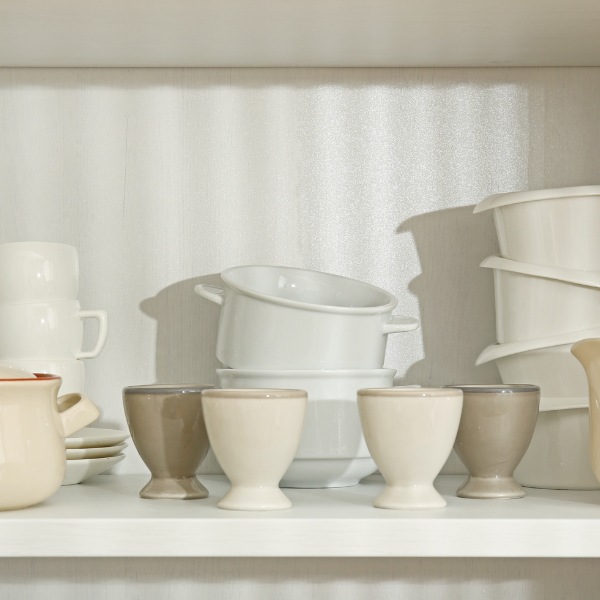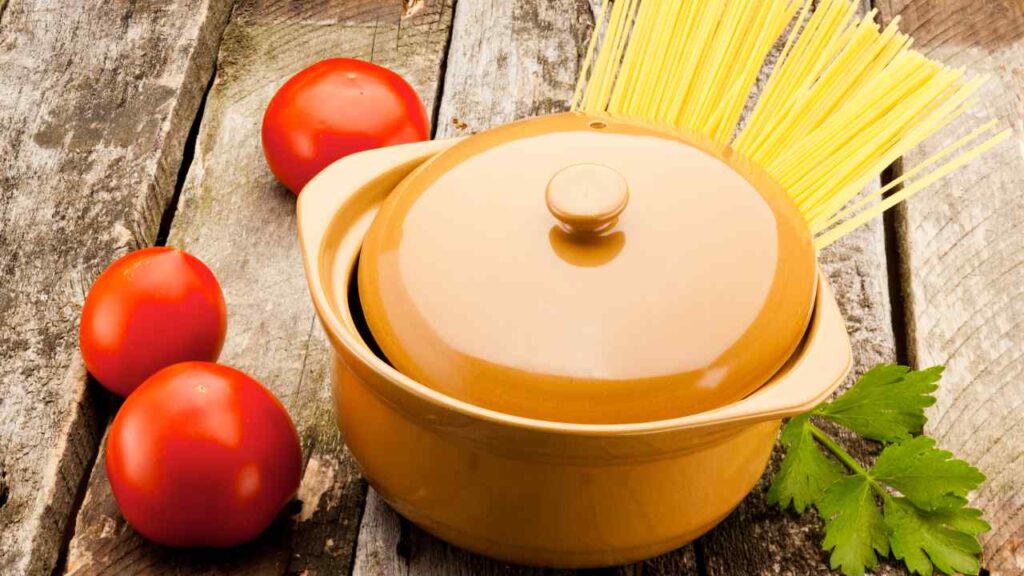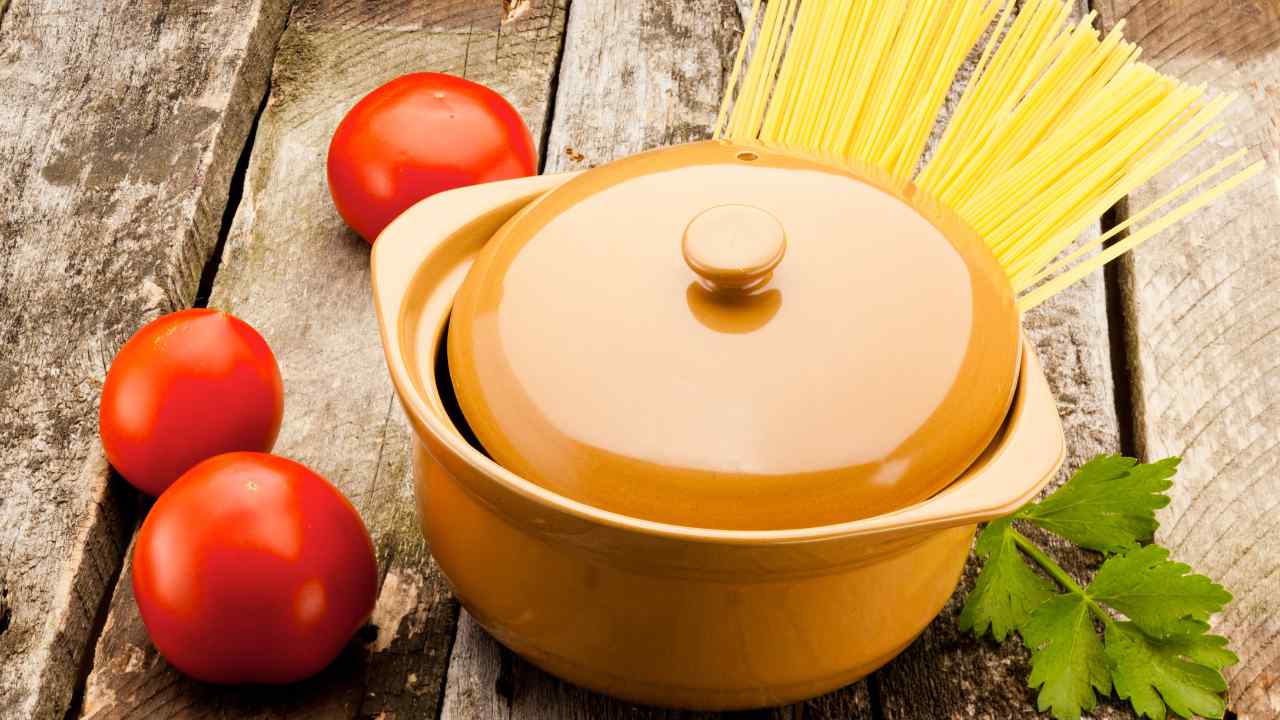Ceramic cookware is a favorite in kitchens worldwide for its non-stick properties and eco-friendly appeal. However, keeping it in pristine condition can be challenging without the right care. If you’ve ever wondered, “How to make ceramic pans last longer?” this guide will give you the essential tricks to keep your pans in excellent shape. By following these tips, you can enjoy the durability, safety, and efficiency of your ceramic cookware for years to come.
How to Make Ceramic Pans Last Longer?

To maximize the lifespan of your ceramic cookware, you need to adopt some smart care habits. These practices not only maintain the non-stick surface but also ensure safe and healthy cooking. Let’s dive into 11 actionable tips.
1. Season Your Pan Before First Use
While ceramic pans often don’t require seasoning, it’s a good habit to develop for longevity. Lightly coat the surface with a thin layer of vegetable or olive oil, then heat it on low for a few minutes. Wipe off excess oil after cooling. This creates a protective layer and enhances the pan’s non-stick properties.
2. Use the Right Cooking Tools
Using the wrong utensils can damage the ceramic coating. Stick to:
- Wooden spatulas
- Silicone or nylon utensils
- Soft-edged cooking tools
Avoid metal utensils as they can scratch the surface, compromising the pan’s non-stick abilities. Proper tools are crucial for preventing damage to ceramic pans.
3. Cook on Low to Medium Heat
Ceramic pans are designed to distribute heat evenly, so there’s no need for high heat. Cooking at low to medium temperatures helps:
- Preserve the non-stick coating
- Prevent overheating, which may cause warping or discoloration
- Maintain the integrity of the cookware
Overheating is one of the fastest ways to reduce the lifespan of your ceramic pans.
4. Preheat Gently
Preheating your pan without oil or food can lead to cracking or coating damage. To avoid this:
- Add a small amount of oil or butter before heating.
- Allow the pan to warm gradually on low heat.
This prevents unnecessary stress on the ceramic surface.
5. Avoid Non-Stick Spray
Non-stick sprays often leave residue that builds up over time, making the surface sticky instead of smooth. opt for a small amount of:
- Butter
- Oil (preferably with a high smoke point like avocado oil)
This simple change can significantly extend the lifespan of your ceramic cookware.
6. Hand Wash for Best Results
While some ceramic pans are dishwasher-safe, hand washing is the best way to maintain their non-stick coating. Here’s how:
- Use warm water, mild dish soap, and a soft sponge.
- Avoid abrasive cleaners or scouring pads.
Following proper cleaning tips for ceramic pans ensures their coating remains intact.
7. Let the Pan Cool Before Washing
Exposing a hot ceramic pan to cold water can cause thermal shock, leading to cracks or warping. Always let the pan cool down completely before washing to prevent damage.
8. Store Carefully
Improper storage can lead to scratches or chips. Here’s how to store ceramic cookware:
- Use pan protectors or soft cloths between stacked pans.
- Store them separately if possible.
This simple step is one of the best ways to maintain ceramic cookware.
9. Avoid Abrasive Cleaning Tools
To clean stubborn stains, avoid using steel wool or harsh scrubbing pads. Instead:
- Soak the pan in warm, soapy water.
- Use a non-abrasive sponge or a baking soda paste for gentle scrubbing.
Gentle cleaning helps prevent scratches and extends the life of the pan.

10. Don’t Use It for High-Temperature Baking
Ceramic pans are versatile but not suitable for high-temperature baking. Always check the manufacturer’s temperature guidelines and stay within the recommended limits. This prevents cracking and prolongs the cookware’s life.
11. Rotate Your Cookware
If you use ceramic pans daily, consider rotating them with other cookware. This reduces wear and tear and gives your pans a break, helping them last longer.
Summary of Extend the Life of Your Ceramic Cookware
| Trick | Benefit |
|---|---|
| Season your pan | Enhances non-stick properties |
| Use proper utensils | Prevents scratches |
| Cook on low to medium heat | Protects the coating |
| Preheat gently | Avoids cracking or warping |
| Avoid non-stick spray | Prevents sticky residue |
| Hand wash pans | Preserves the coating |
| Cool before washing | Prevents thermal shock |
| Store carefully | Avoids chips and scratches |
| Use gentle cleaning tools | Maintains non-stick surface |
| Limit high-temp baking | Prevents coating damage |
| Rotate cookware | Reduces wear and tear |
Related Article: 7 Facts You Must Know: Are Ceramic Non-Stick Pans Safe to Use?
Conclusion
Extending the life of your ceramic cookware is simpler than you might think. By using the right utensils, avoiding high heat, and cleaning your pans carefully, you can keep them in excellent condition for years. Proper storage, gentle cleaning, and following manufacturer instructions are also essential. With these smart tricks, you can enjoy your ceramic pans’ non-stick performance and aesthetic appeal for a long time.
FAQ’s
How to make ceramic pans last longer?
To make ceramic pans last longer, always cook on low to medium heat, use wooden or silicone utensils, hand wash with mild soap, and store them carefully to avoid scratches.
What are the best ways to maintain ceramic cookware?
The best ways include avoiding metal utensils, hand washing with non-abrasive sponges, and using a small amount of oil instead of non-stick sprays to prevent residue buildup.
Can ceramic pans handle high heat?
Ceramic pans are not designed for high heat. Cooking on low to medium heat preserves the non-stick coating and prevents damage.
How do I clean stubborn stains on ceramic pans?
Soak the pan in warm, soapy water and gently scrub with a baking soda paste and a soft sponge. Avoid using abrasive cleaners or steel wool.
What’s the best way to store ceramic pans?
Store ceramic pans with soft cloths or pan protectors between them to prevent scratches. If possible, store them separately to maintain their condition.

